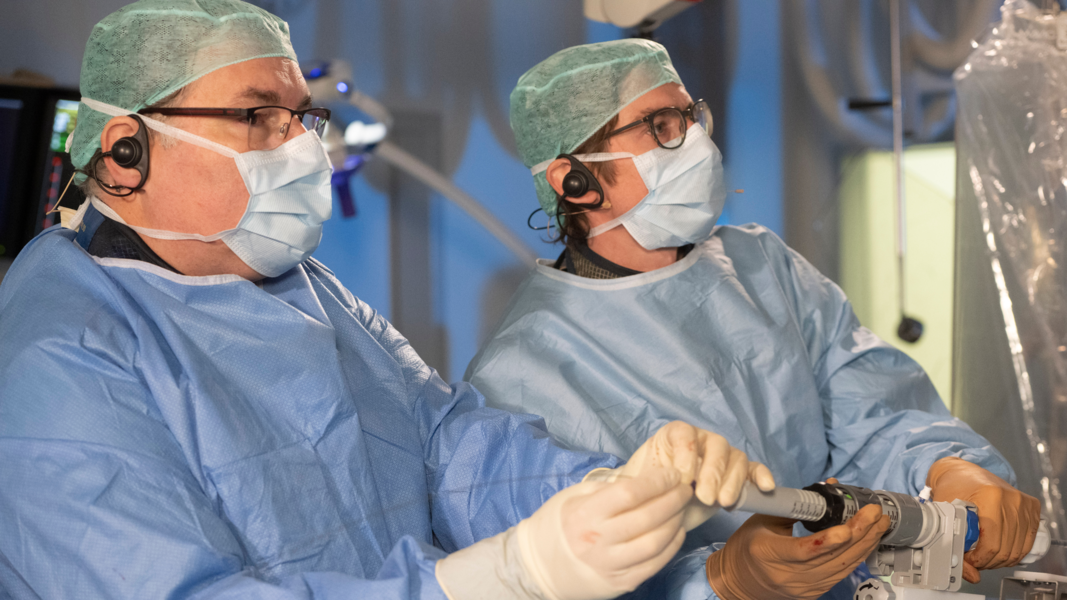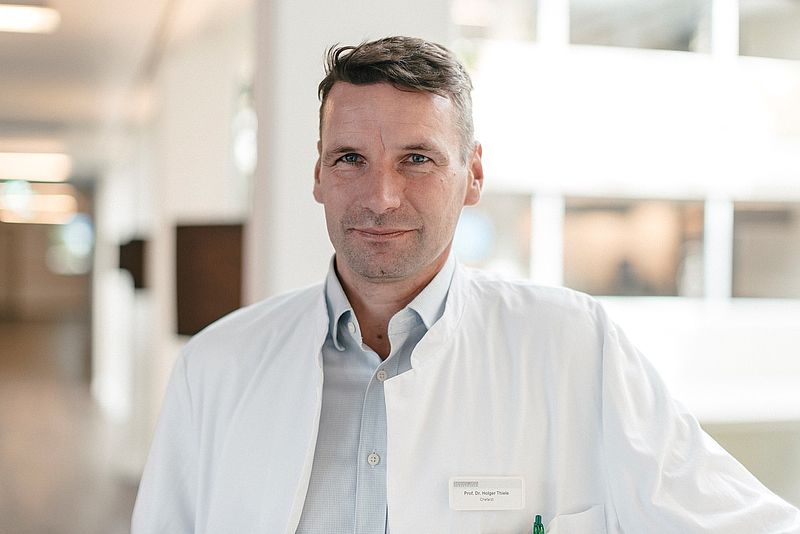The tricuspid valve is one of the four heart valves and often becomes leaky at old age. The disease leads to a number of symptoms that severely restrict the quality of life of the affected patients. These include severe fatigue, water retention in the legs and abdomen, shortness of breath and changes in liver and kidney function. An operation to treat the leak in the tricuspid valve is an option and is also performed gently on the beating heart at the Heart and Vascular Centre of the Mainz University Medical Centre. However, patients often already have liver or kidney damage or significantly impaired right heart function, which significantly increases the risk of such an operation.
In contrast, the field of minimally invasive treatment options for leaking tricuspid valves has developed rapidly over the last six years. A wide variety of procedures have been used here, and the clip procedure for repairing the defective valve in particular has already become part of everyday clinical practice. However, in the case of very complex valve anatomies, but also when patients come to the clinic too late, such a clip procedure can no longer be performed.
In this case, the valve must be completely replaced. "The Evoque valve makes this possible for the first time without surgery via a catheter-based access through the vein. This allows us to virtually completely eliminate tricuspid valve insufficiency and restore a great deal of quality of life to many patients for whom there was previously no treatment option. This has been impressively demonstrated by the associated pivotal study," says Philipp Lurz, who performed the procedure last week together with Prof Dr Ralph Stephan von Bardeleben.
"Thanks to our expertise and the management of the pivotal trial, we in Mainz were in the unique position of being able to perform the world's first procedure outside of trials. This procedure actually marks the point at which an innovation becomes reality," says a delighted Philipp Lurz. "This is precisely our mission at the Mainz University Medical Centre: to drive innovation forward and make it a clinical reality."
Philipp Lurz is convinced that close cooperation between cardiologists and cardiac surgeons is essential and crucial for success: "The interdisciplinary work with Prof. Dr Hendrik Treede, Director of the Department of Cardiovascular Surgery, who has great expertise in surgical heart valve therapy, is particularly noteworthy here and is also structurally anchored in the University Heart and Vascular Centre founded some time ago."
Scientific contact: Univ.-Prof. Dr. Philipp Lurz (philipp.lurz@unimedizin-mainz.de), Center for Cardiology, University Medicine Mainz,
Source: press release JGU Mainz (in German only)


